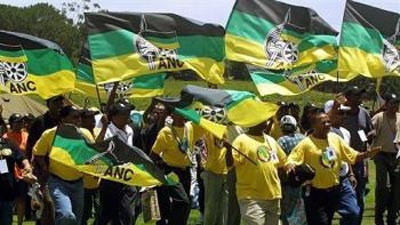It’s crunch time for the African National Congress (ANC). This weekend 4,500 delegates will gather in Mangaung in South Africa’s heartland to take decisions that will have a major impact on the country over the next seven years.Many South Africans both inside and outside the ANC believe that it faces a crisis in leadership. President Zuma has been mired in controversy to an extent that it is difficult to justify his re-election. It is hard for many South Africans to consider another five year term for the incumbent. North America experienced a similar moment when President George Bush junior was re-elected to office a second time. Half of the United States could not believe that they had to endure a second term of a man who brought the country very little respect.As in the United States, the reality is that more than half of all South Africans support a second term for Zuma. There are those who believe that he is the person most likely to change their circumstances and he has shown himself to be a leader who expresses the needs of many of the rural poor.This, however, will not be the key factor guiding discussion this weekend.
Two camps have emerged, each with its own set of interests. One camp is led by President Zuma and the other by his deputy, Kgalema Motlanthe.
A few months ago, one could have described these camps as broadly divided along class lines with Zuma representing working class interests and Motlanthe standing for business interests. Some of South Africa’s wealthy politicians like Tokyo Sexwale and Matthews Phosa were aligned with Motlanthe. From this camp emerged some conciliatory gestures towards Julius Malema, who has been strongly campaigning for Motlanthe, despite his expulsion from the ANC. The union movement and the SACP felt that Zuma had kept his word on a number of issues including HIV/Aids and a commitment to the creation of decent jobs. They decided, for practical reasons, to throw their lot in with him.
What we are facing now is a different scenario. My sense is that the Zuma camp has out-witted the Motlanthe camp. Zuma goes into conference with the highest percentage of pre-conference delegate support. In 2007, at the last ANC conference in Polokwane, the indications were the same despite the fact that the Mbeki camp remained convinced that they would win.The trump card of the Zuma camp is his choice of deputy for the next term. Cyril Ramaphosa will bring a great deal of experience and sophistication to the presidency and will allow Zuma to largely step back. It was never Zuma’s intention to stand this time around. He made that clear shortly after his election at Polokwane. Those around him, however, convinced him that he should stand for the sake of continuity and to stop the ANC tearing itself apart. The agreement is that he will give most of his attention to sorting out the substantial weaknesses in the ANC while Cyril Ramaphosa will take over the daily running of the country.
It will be very similar to what happened when Mandela was president. Mandela was largely the ceremonial head while Mbeki beavered away at the coal-face. There will be a difference now in that Zuma will be there to assure the rural poor, black business and much of the ANC membership, while Ramaphosa will no doubt be an important liaison between labour and business. A deal like this can only be positive for the country.Marikana does, however, loom over him.
He has lost respect among a section of South Africans and he will have to do whatever he can to restore this in the 14 months before the 2014 elections. If he does this, he will be the perfect bridge, bringing together those ANC politicos who have essentially withdrawn from the national platform and those who presently occupy it. The loser will be Kgalema Motlanthe. He unfortunately has played his cards badly and has come across as a vacillator at a time when strong leadership was required.
The Zuma/Ramaphosa deal will come into effect at a time when young people across the country have indicated that they are positive about the future of South Africa (see Reconciliation Barometer), but want a party that brings confidence and respectability.There is, however, the possibility that the contest between the two camps will be hard-fought. If neither camp definitively asserts itself, it could lead to paralysis within the party with one group always having to battle it out with another. The stakes are high.
But all indications are that the ANC in its 100th year will once again display the art of clever compromise that has often been its saving grace over the past century. This will buy it a little time to get itself onto a better footing but will not reduce the enormous challenges facing the country.
Zubeida Jaffer writes forWhatsUpANC,a University of the Free State journalism project which gives special attention to the views of young people attending the elective conference of South Africa’s governing party, the African National Congress.
– By Zubeida Jaffer


